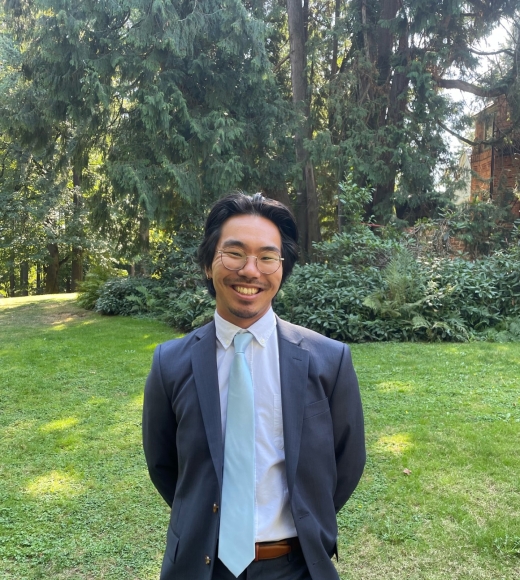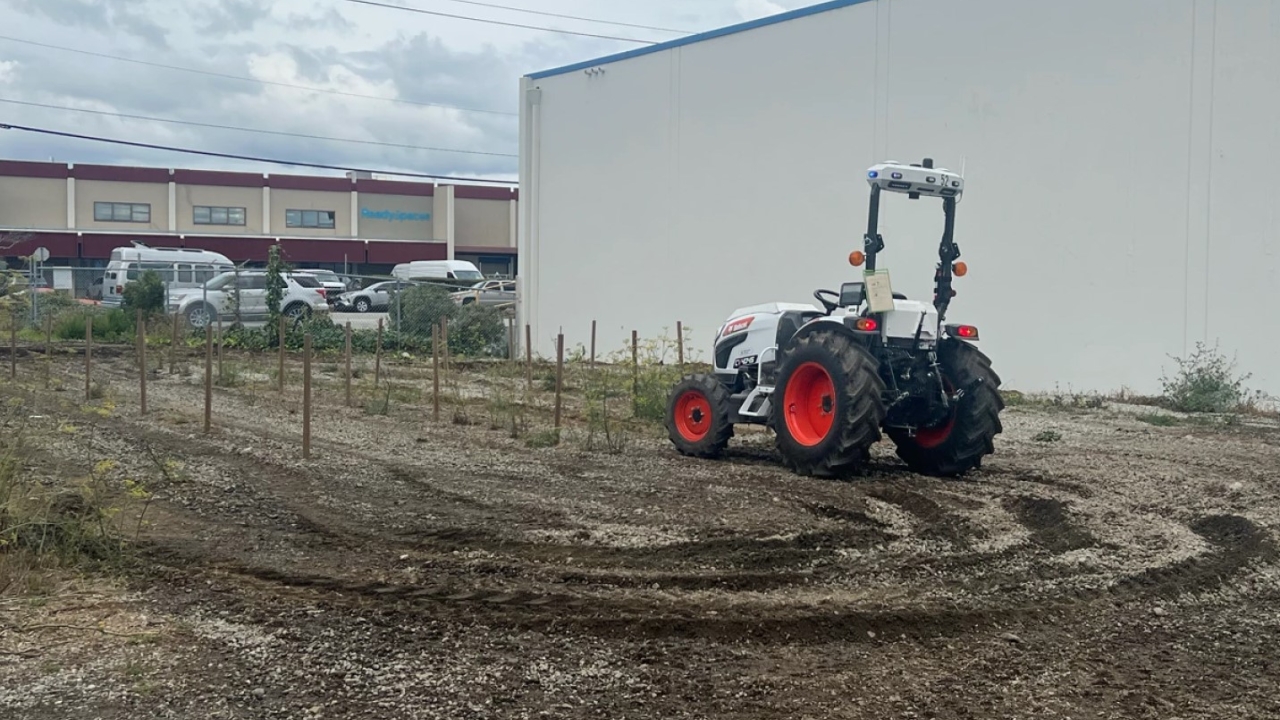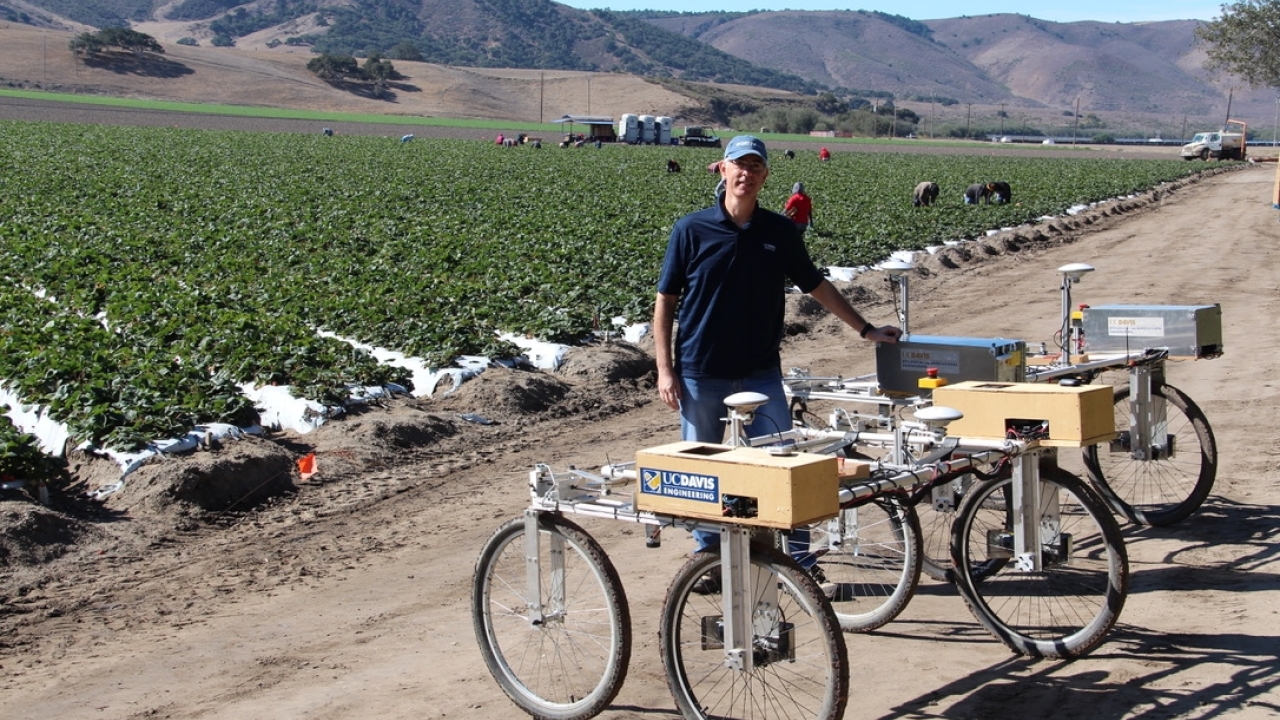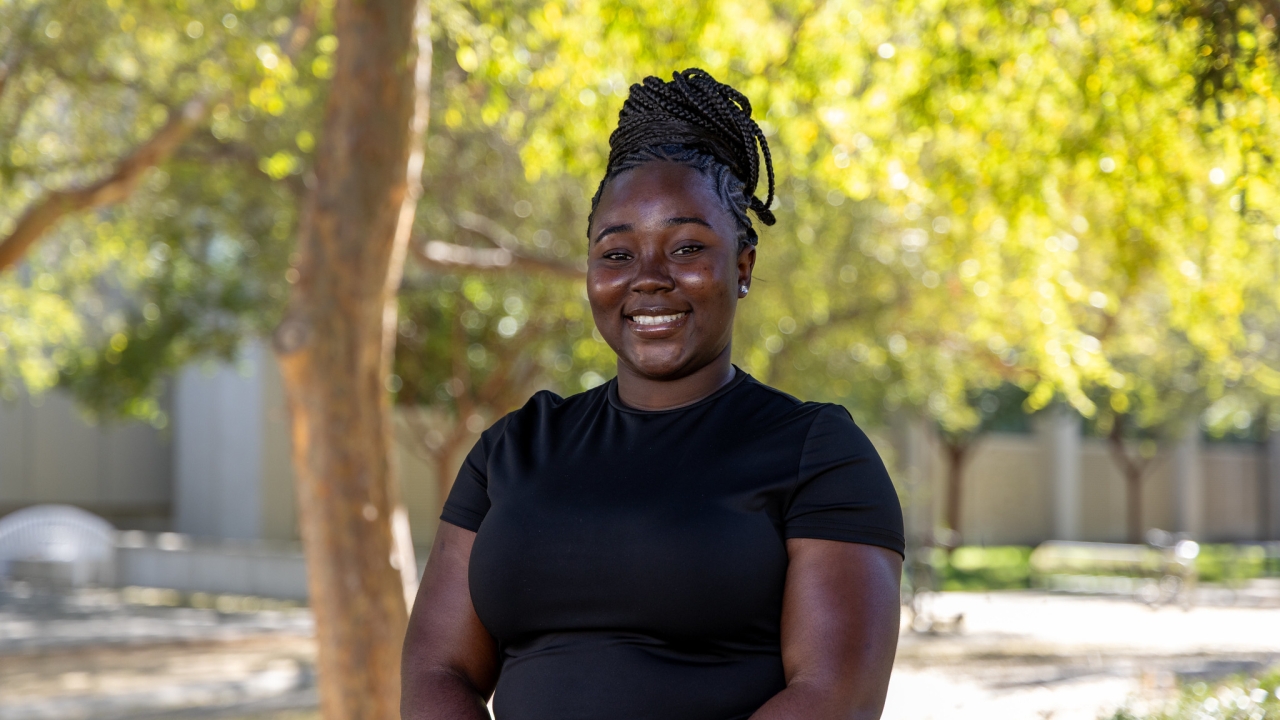Master's Program Opens Doors for Alum's Rocket-Focused Career

As a propulsion engineer at The Aerospace Corporation, a federally funded nonprofit organization dedicated to aerospace research based in Southern California, Kellen Ochi has the task of ensuring optimum performance rocket engines. At any point, you may find him conducting a thermodynamic analysis on a rocket engine or working "on-console" during a launch to make sure his specific areas are running smoothly.
Ochi, who earned his master's degree in mechanical and aerospace engineering in 2022 at the University of California, Davis, attributes his education and his graduate work at the College of Engineering's Energy Research Laboratory as instrumental in obtaining his position in the rocket industry. We spoke with Ochi about how his time at UC Davis prepared him for the work he does today and how an early love of planes, trains and automobiles translated into sending vehicles into space.
Can you tell us how you discovered engineering? Who or what inspired you to become an engineer?
Growing up I was a big Hot Wheels, Thomas the Tank Engine and airplanes kind of kid. I even had a select few Hot Wheels that absolutely needed to come on whatever family vacation we went on. I didn't know exactly what I wanted to do for a while, but I knew that I wanted to be within an industry that encapsulated my early passions. While taking an introductory to engineering course at my high school, I found myself having fun while also being intellectually challenged and it was around then that I thought engineering was supposed to be my path. Little did I know that I wouldn't be working with any cars, trains or airplanes, but with rockets.
What initially drew you to the mechanical and aerospace engineering program at UC Davis?
My partner and I were both looking to go to graduate school right after undergrad — I got my bachelor's in physics from Lewis & Clark College — so we were both applying to a wide array of places. Davis checked off a lot of boxes that we both were looking for: A larger university with access to research possibilities, reasonable costs of living, access to nature, and, of course, where we were both accepted to. There were several places that fit that description, but upon visiting, I really enjoyed the vibe, and I think that was really the deciding factor, which I admit is quite 'unengineer' of me.
What aspects of the UC Davis master's program in mechanical and aerospace engineering would you say best prepared you for a career in engineering and for your current role at The Aerospace Corporation?
My thesis is the thing that got me here today at my position within the rocket industry. I was extremely fortunate to receive the opportunity to work with Professor Paul Erickson through the UC Davis Energy Research Laboratory. During my time, we were able to design, create and test a hybrid rocket system using ABS plastic, a commonly used thermoplastic polymer that has no melting point, as the fuel with gaseous oxygen as our oxidizer. It was an invaluable experience to start from the ground up, spending hours troubleshooting hardware, building a safe experiment, testing, and finally publishing our work, "Effects of Hydrogen-Oxygen Torch Igniter Combustion to an ABS-GOx Hybrid Rocket System," in the International Journal of Hydrogen. From this experience, I have been able to translate all of the skills and knowledge from classes, academic papers, etc., to my day-to-day operations.
You work as a propulsion engineer at The Aerospace Corporation. Can you tell us what your day-to-day looks like, and what your responsibilities and duties encompass?
Colloquially, I find that Rocket Engine Analyst best encompasses what I do. At The Aerospace Corporation, I evaluate the performance and design of modern rocket propulsion engines to support the U.S. government's missions. My role encompasses all steps of the rocket engine life from production, hot-fire testing and flight, where I specialize in thermodynamic analyses.
A very cool part of my job is that I have the opportunity to be part of the launch-day operations by being on-console. If you can imagine the big room with the big screen in the front and all the engineers hunkered down in front of screens, that hunkered-down engineer is me. Launching a rocket requires very fine precision and timing so we receive a lot of data in order to accomplish that. The engineers on-console have to be experts about their sub-system in order to respond to any anomalous data that could occur.
What skills did you learn during your program that you regularly use in that day-to-day capacity?
Thermodynamic analysis, breaking down complicated subjects into small truths for easy comprehension for students, and experimental design. I regularly use the knowledge learned in classes to inform my analytical models; I'm always breaking down complicated problems and systems into bite-sized pieces, and I often have to consider whether a given system's tests are adequately screening for issues.
What aspects of your experience as a graduate student researcher in the UC Davis Energy Research Laboratory inform your job now?
I was able to work with an industry partner, which was illuminating. We were in weekly meetings, going back and forth with designs and conducting trade studies; we eventually built a working prototype. Both the communication and technical skills gained have been impactful to who I am as an engineer today.
Is there a professor or staff member who had an impact on you?
Professor Paul Erickson had the biggest impact for sure. He is the person who believed in my abilities to create a project that would fit the lab's interests as well as my own. He supported my project at every step, providing insightful feedback on design, process, operations and publication.
What advice would you give to engineering students who are preparing to begin their careers? Are there trends you are seeing now that they should be aware of?
Finding a place and a job that one loves is the number one goal in my opinion. Statistically, most people spend more of their waking hours at a job than anywhere else, so finding a place that one is actually happy to go to is crucial.
The big trend, I think, is no surprise, but many industries are considering how general artificial intelligence will affect workplaces and products, especially data products. While it is in its infancy, I believe that we will see AI in our workplaces across industries soon and I think that it may even become a standard required skill/tool one day. However, with this, it becomes more paramount to build and solidify one's fundamental knowledge.
Is there anything else you'd like to share about your experience at UC Davis?
I had the distinct opportunity to work on my graduate degree partially during COVID. COVID was a wild time, but living in Davis with UC Davis' great response made it a lot better. I miss the little things like riding bikes everywhere, the Saturday Farmers Market, and living and working so close to so many of my friends. I am grateful for my time at UC Davis and all the doors it opened for me.




